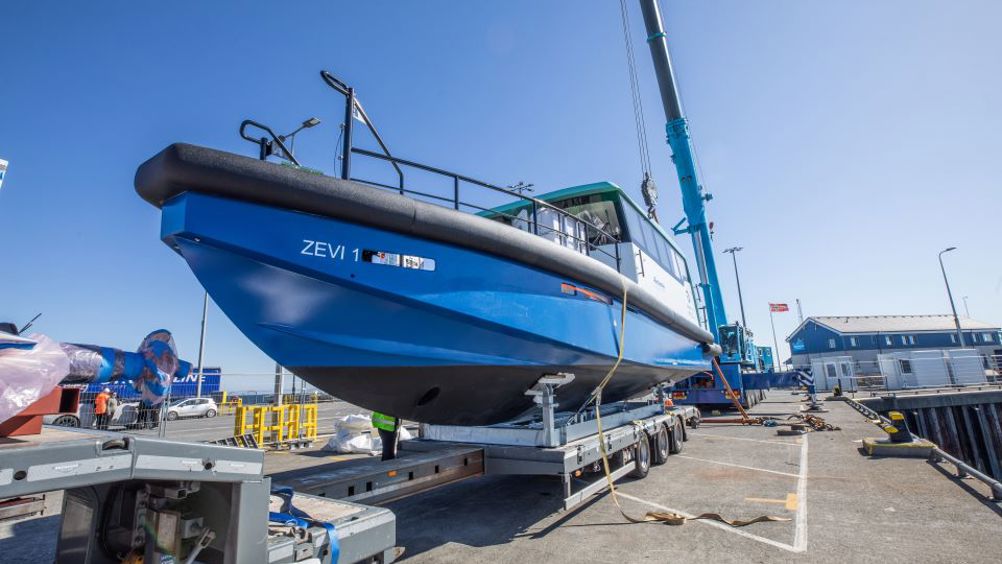Zero-emissions Artemis EF-12 ferry begins trials in Orkney
A fully electric, 12 passenger hydrofoil vessel has been delivered in Orkney as part of the UK Shipping Office for Reducing Emissions (UK SHORE) programme.

The deployment of Artemis Technologies’ Artemis EF-12 Workboat XL signals the start of trials to evaluate the vessel’s performance in the operating environment in Orkney. The vessel will then be put into service for a three-year trial that connects Kirkwall with Shapinsay, Egilsay, Wyre and Rousay on four daily rotations.
Over the coming months, data will be collected to measure the vessel’s efficiency and operational performance. Insights gained from these trials will validate the technology and support wider adoption of maritime technology that enables zero-emission operations throughout Orkney and beyond.
Accompanying the Artemis EF-12 Workboat XL in Orkney is the installation of an ultra-fast charger in Kirkwall, which will provide a full charge to the 12-metre vessel in under 60 minutes.
In a statement, Dr Iain Percy, CEO of Belfast-headquartered Artemis Technologies, said: “Bringing the Artemis EF-12 Workboat XL to the islands supports Electric Orkney’s ongoing goal of decarbonising transport whilst improving the quality of service for residents and visitors.”
Register now to continue reading
Thanks for visiting The Engineer. You’ve now reached your monthly limit of news stories. Register for free to unlock unlimited access to all of our news coverage, as well as premium content including opinion, in-depth features and special reports.
Benefits of registering
-
In-depth insights and coverage of key emerging trends
-
Unrestricted access to special reports throughout the year
-
Daily technology news delivered straight to your inbox










Water Sector Talent Exodus Could Cripple The Sector
Maybe if things are essential for the running of a country and we want to pay a fair price we should be running these utilities on a not for profit...